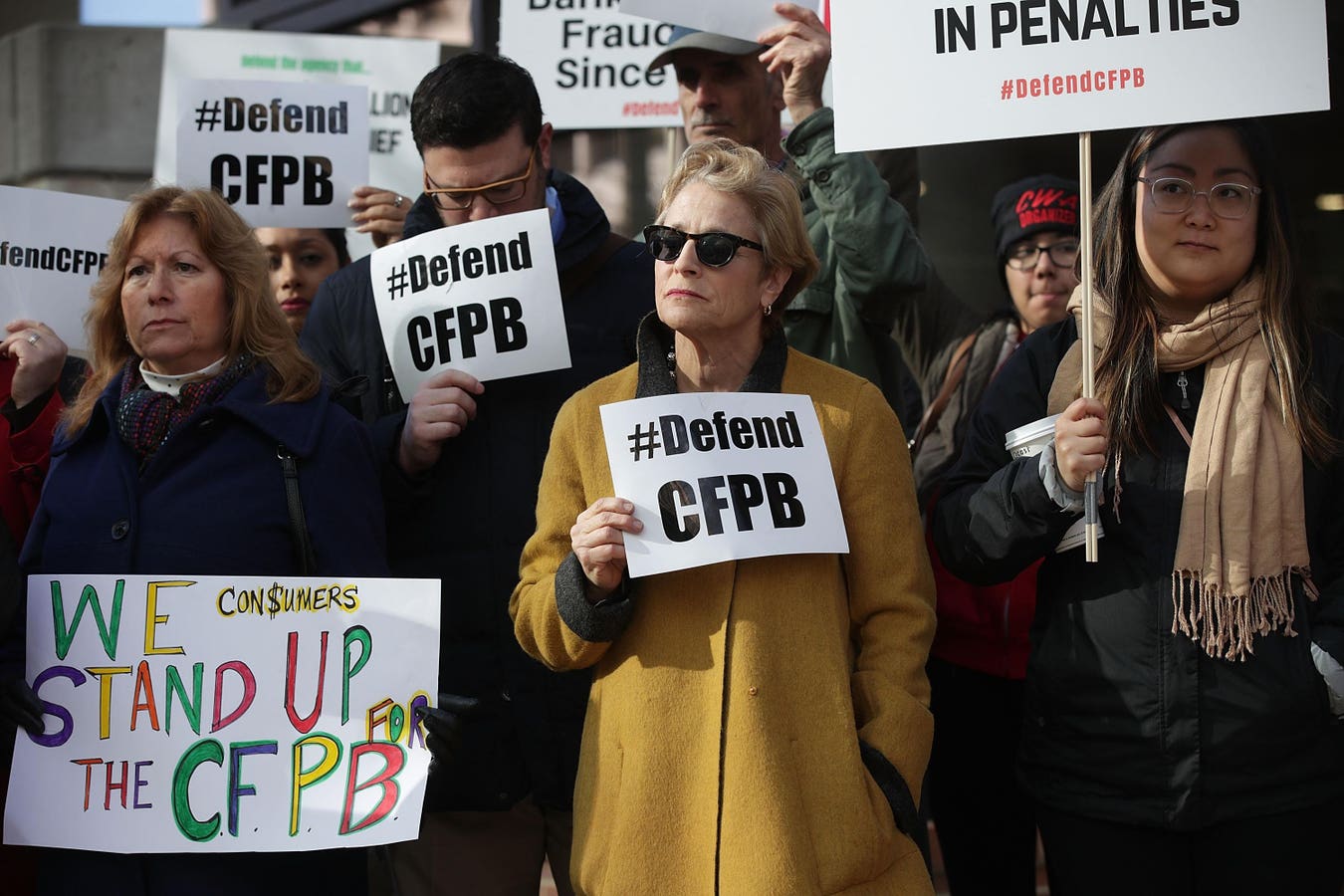Oh No, Is The CFPB Calling You? Nope, It’s A Scam
Share to FacebookShare to TwitterShare to Linkedin(Photo by Alex Wong/Getty Images)
Getty Images I am an unabashed fan of the Consumer Financial Protection Bureau (CFPB). Not only do they protect financial consumers from things like junk bank fees, they actually save us billions of dollars. Yet do they call individuals directly? No, this is yet another example of cyberthievery.
The CFPB recently reported that “we confirmed that scammers are using CFPB employees’ names to try to defraud members of the public. We’ve heard from people, specifically older adults, who received phone or video calls.”
“We can’t say it enough,” the agency states, – the CFPB will NEVER contact you and ask you for sensitive information or to pay money. This includes never asking you to pay an upfront fee or taxes, or telling you that you’ve won a lottery, sweepstakes, or class-action lawsuit. We also won’t ask you for personal or sensitive information before you can cash a check we’ve issued.”
Like nearly all government imposter scams, these contacts involve 1) a threat of a lawsuit or fine 2) asking you to send money, and/or 3) asking you for personal information like a bank or Social Security account number. Don’t give them anything.
Scamsters may even say that you’ll be receiving part of a settlement from a suit they filed. Again, like nearly all agencies, they will contact you by snailmail. Here are some specific safeguards:
MORE FOR YOUSamsung Makes New Free Offers For Galaxy S24 UsersWWE SmackDown Results: Winners And Grades As The Rock ReturnsRussian Artillery Gunners Are Getting Cocky. As Ukraine Runs Out Of Ammo, Russian Guns Gather For Devastating Salvos.
Ignore any phone or video call or an email from an imposter claiming to be a CFPB or other U.S. government agency such as the IRS. Ignore messages or calls notifying you of an opportunity to participate in a class-action lawsuit, or that you’ve won a lawsuit or owe money you didn’t expect. Being told you must first pay taxes or another upfront fee to collect the money. They may continue to find “reasons” for you to pay more fees or taxes. It is all part of the scam. If you’re contacted by “someone” from the CFPB and want to confirm whether it’s real or a scam, call the CFPB call center at (855) 411-2372 between 8 a.m. and 8 p.m. ET, Monday through Friday.
While we’re on the subject, here’s some common ways to protect yourself and loved ones:
1) Never share sensitive information – Avoid sharing Social Security numbers, account information, or credit card numbers with people you don’t know. They sell this information to other cyberthieves who can open up accounts with stolen identity information.
2) Never pay upfront for a promised prize – If you’re told you must pay fees or taxes to receive a prize, it’s a scam. All they want is your money. There’s never a prize.
3) If it sounds too good to be true, it probably is – If someone is trying too hard or pressuring you, you can always walk away. You want you to make a bad decision quickly.
That last one is the most powerful protection against scams: If someone is pressuring you to provide personal information, hang up or ignore them.
Follow me on Twitter or LinkedIn. Check out my website or some of my other work here.












 Bitcoin
Bitcoin  Ethereum
Ethereum  Tether
Tether  XRP
XRP  USDC
USDC  Solana
Solana  TRON
TRON  Lido Staked Ether
Lido Staked Ether  Dogecoin
Dogecoin